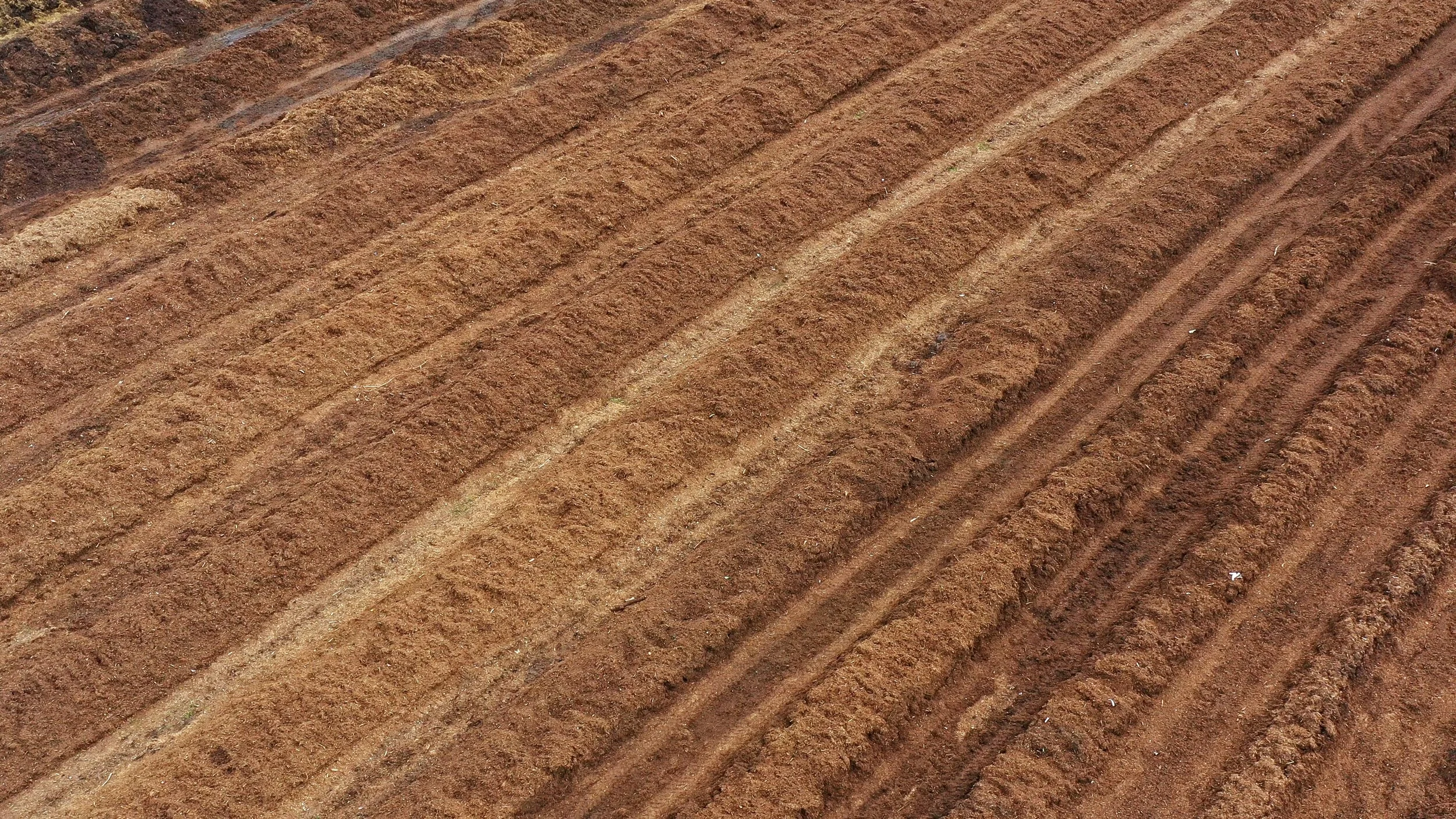Tailored Compost Solutions for Agriculture
Why Compost?
Composting is an aerobic biological decomposition process where microorganisms break down and convert raw organic materials (plant and animal) into relatively stable humus-like materials to improve soil chemical, biological, and physical characteristics. The horticultural industry is the primary consumer of compost in the world, making the composting process the most widespread recycling technology of organic waste in agriculture.
History
In 1988, the Florida Legislature approved a comprehensive ‘Solid Waste Management Act’ that mandated a 30% recycling goal intended to minimize the consumption of landfill capacity by municipal soil waste. Next, in 1992 to continue to address the problem to reduce landfill space, Florida legislate prohibits the disposal of yard waste in landfills, which was later repealed in 2010. In 1995, the Florida Department of Environmental Protection (FDEP) approved the deregulation of yard waste composting, resulting in industry expansion. Most recently, in 2008 we see Florida Legislature has mandated a 75% recycling goal by 2020. In the wake of these legislative initiatives, the industry saw the number of registered or permitted composting facilities rise from 11 to 115 from 1988 to 2019, respectively.
We take composting further
We utilize compost as a carrier for bio-fungicide, bio-stimulants and as an nutritional amendment for the soil. This way, we can counter different inherent problems of soil, such as depletion of nutritional value over time. Our tailored compost is the solution.
Custom blended Compost
We provide a custom blended compost product that meets specific requirements to increase the yield and nutritional value of the crop. We aim to help growers by working alongside strict regulations to help protect our environment.
BENEFITS OF COMPOST
Limited Chemical Pesticides
Limited Chemical Fertilizers
Limited Herbicides
Lower Water Usage
Higher Yields
Lower Water and Nutrient Runoff
More Nutritious Food
Increased Food Safety
Better Farming Practices
Increased Usage of Organic Bio-stimulants
Better Soil Regeneration
Less Food Waste
Less Energy
Less Packaging
Soil regeneration, as a particular form of ecological regeneration within the field of restoration ecology, is creating new soil and rejuvenating soil health by:
Minimizing the loss of topsoil
Retaining more carbon than is depleted
Boosting biodiversity
Maintaining proper water and nutrient cycling.
This has many benefits, such as: soil sequestration of carbon in response to a growing threat of climate change, a reduced risk of soil erosion, and increased overall soil resilience.
Targeted crops for compost application
Turfgrass - Organic and conventional sod production, golf courses, public works (DOT), erosion control
Ornamental plants – Nurseries, greenhouse growers, landscapers/lawn care, and topsoil producers.
Plasticulture: Tomatoes, peppers, strawberries, and watermelons
Open field: Beans, corn, and sugar cane
Citrus – Planting young and mature fields.
Bagging and wholesalers – Direct market retail to customers, garden centers/other retailers.
The Solution
At Resource Group, we strive to provide the farmers and green house growers the best product to suit their specific needs. By custom blending our compost and adding biological and inorganic fertilizer, we can generate a product to meet specific requirements for each grower. Our products promise the least impact on the environment and the highest return while being the most cost-effective addition for growers to use.











